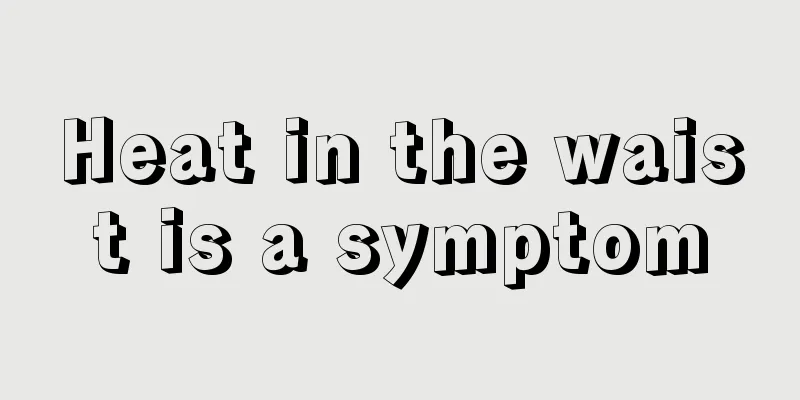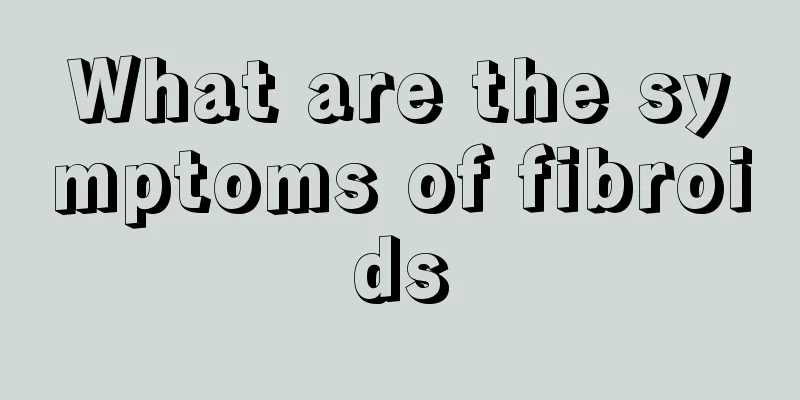Five major symptoms of early colorectal cancer

|
The main symptoms of early colorectal cancer include changes in bowel habits, blood in the stool, digestive tract symptoms, abdominal masses, and rectal distension. The specific analysis is as follows: 1. Changes in bowel habits: The growth of tumors in the large intestine of patients with early colorectal cancer can easily hinder the discharge of feces, leading to changes in bowel habits, such as increased bowel movements. Increase dietary fiber intake, such as eating more foods rich in dietary fiber such as corn, oats, celery, and sweet potatoes to promote intestinal peristalsis and improve bowel habits. Drink more water to keep the intestines hydrated, which helps soften stool and reduce bowel difficulties. 2. Blood in the stool: It manifests as persistent, chronic bloody stools with mucus mixed with feces. The amount of blood in the stool caused by rectal cancer is generally small. This bloody stool often covers the surface of the stool and is bright red or dark red in color. Perform fecal occult blood tests regularly to detect blood in the stool early. Patients with early blood in the stool of rectal cancer can use hemostatic drugs under the guidance of a doctor, such as injectable white-browed snake venom hemocoagulase, to control the symptoms of blood in the stool. 3. Digestive tract symptoms: abdominal distension, discomfort or indigestion-like symptoms may occur. In the case of right-sided colon cancer, most cases are abdominal pain or dull pain, which may be intermittent at first and then become continuous. Avoid eating spicy, irritating, greasy, and cold foods to reduce intestinal irritation and relieve digestive tract symptoms. 4. Abdominal mass: Early-stage rectal cancer patients may also find abdominal masses, which are cancerous tumors or masses that have infiltrated and adhered to the omentum and surrounding tissues, accompanied by adverse symptoms such as pain. If the abdominal mass is caused by cancer, surgical treatment is required to remove the tumor and clear the surrounding infiltrated tissues. 5. Rectal distension: Due to the pressure of the tumor, the patient may feel distension, especially when the tumor is cauliflower-shaped. There is often pus and blood secretion around the anus, and the patient may also have symptoms such as perianal itching. Eat more foods rich in dietary fiber and keep bowel movements smooth to reduce the rectal distension. During the treatment, you should maintain a good mentality and eating habits, and actively cooperate with the doctor's treatment and care to improve the treatment effect and quality of life. At the same time, regular review and follow-up should be carried out to detect and deal with abnormal conditions in time to control the progression and metastasis of the disease. |
<<: Is it normal to have a small amount of bleeding after cervical cancer screening?
>>: What are the early symptoms of cervical cancer
Recommend
What factors are likely to induce liver cancer? The most effective dietary remedies for liver cancer are recommended
Liver cancer is currently the most common maligna...
What kind of underwear is good for breasts
Everyone loves beauty, especially women. In the p...
The effect of drinking salt water in the morning
In the morning, many friends like to drink a glas...
How to listen to the fetal heart rate?
During the pregnancy, family members often use ma...
The process of food entering the human body
Some people are curious about how food goes from ...
5 ways of surgical treatment for pancreatic cancer
Pancreatic cancer progresses very quickly from th...
Detailed symptoms of testicular cancer
Clinically, many cancers are already in the middl...
How many minutes does it take to cook rapeseed? How long does it take to cook rapeseed?
Rapeseed is actually the same as lettuce and spin...
4 steps after meals can help prolong life
For the elderly, the time after meals is a very i...
Can people with prostate cancer eat pomegranates? What foods are good for the treatment of prostate cancer?
Now many elderly people are troubled by some pros...
What can patients with prostate cancer eat to relieve their condition
Suffering from prostate cancer is something that ...
What is the best way to wash underwear?
I believe everyone has their own way of cleaning ...
Do you have red and itchy patches on your face?
Everyone knows that a person's face is very i...
The three most feared signs of late-stage bile duct cancer
In the late stage of bile duct cancer, there are ...
What to check for early colon cancer
For a disease like colon cancer, if it is not dis...









